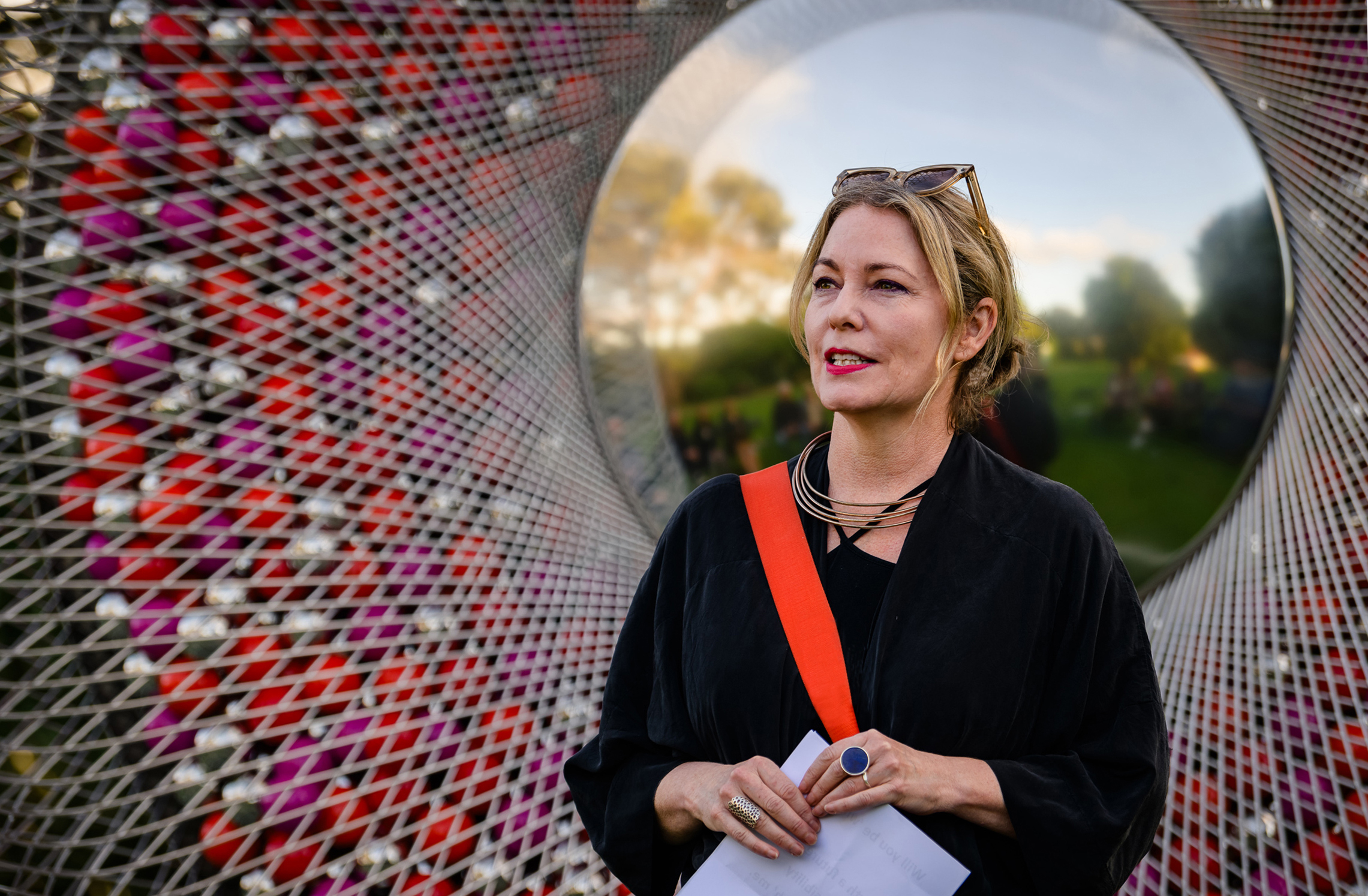Minnie Baragwanath
Profile
Minnie Baragwanath is an author, coach, public speaker, independent consultant, and social innovator. As a leading advocate for people with access needs, Minnie has successfully changed the narrative from disability to accessibility and now to possibility. In 2011, Minnie founded Be. Accessible, a social enterprise working to make Aotearoa New Zealand accessible and inclusive for all. She is also the founder of Be. Lab and the Global Centre of Possibility. In 2022 she established her international consultancy Minnie B Consulting.
Minnie is the recipient of the New Zealand Order of Merit, the Sir Peter Blake Leadership Award and the Westpac Women of Influence Diversity Award. She was also a top ten finalist for New Zealander of the year. In 2023 she published her first book Blindingly Obvious: The beautiful vision of Minnie B. Her book is the first non-fiction book to be fully translated into New Zealand Sign Language and aspires to be the most accessible book ever in Aotearoa.

Insight
Minnie’s haiku-inspired poem frames equality squarely from the perspective of being with her on the journey to equality. Inspired by the discovery that ‘with’ has its origins in old German where it can mean ‘midwife’ she became fascinated by this idea of supporting and enabling the safe birth of ideas and ways of being that enable a more accessible future. In particular she has come to believe that an accessible future can only occur if society learns how to truly support the safe birth of ideas and new practices from access leaders, innovators, designers and creators. That is, when society learns how to be with our access leaders, equity can be achieved.
Refreshing and reimagining the rallying cry ‘nothing about us without us’, Minnie’s words are part question, part provocation, and part invitation. Creating change with people rather than for people, requires intention and empathy. Her words also caution us that being with, is not always easy. It means going with-out, it means stopping with-holding.
Minnie says, “With-holding is what is holding back the emergence of true equality for access citizens. I want a world where we support access innovators and leaders to birth ideas and ways of being, including designing new technology, new approaches to learning, an economy, art and culture that are truly accessible. In other words, I want you to choose to be ’with’ me, to be ‘with’ us! I invite you to support the birth of a fairer better world, a world full of ‘with citizens’. Yes, this may mean having to sometimes go ‘without’ power, control and to let go of the familiar but what magic may result from this small act of sacrifice? What might then be possible for humankind?”
Te Reo Glossary
Te Reo Glossary
ākonga
student, pupil
alofa
love, affection (Cook Islands Māori language)
Aotearoa
New Zealand
aroha
love, affection
haere rā
goodbye, farewell
hapū
subtribe, part of a kinship group
ira tangata
term used for intersex in a Māori context
irawhiti
term used for transgender in a Māori context
Itāria
Italy
iwi
extended kinship group descended from a common ancestor and associated with a distinct territory in Aotearoa
kairangahau
researcher
kaitiaki
guardian
kaitiakitanga
guardianship, stewardship
kia kaha ngā wāhine toa
be strong woman warriors
kia ora
hello, greetings
kia orana
hello, greetings (Cook Islands Māori language)
kōrero
conversation, discussion
kuia
female elder
mahi
work
māmā
mother, mum
mana
status, prestige, authority,
Māngere
a major suburb in South Auckland, New Zealand
Māori
Indigenous people of Aotearoa New Zealand
mauri
life force, life principle
moana
ocean, sea
Ōtautahi
Christchurch, city in South Island, New Zealand
Ōtepoti
Dunedin, city in South Island, New Zealand
pākeha
New Zealander of European/foreign descent
peka
branch (of a tree, river, organisation)
Pōneke
Wellington, Capital of New Zealand
rangatahi
youth, young people
takatāpui
queer, gay, rainbow community
Tāmaki Makaurau
Auckland, city in North Island, New Zealand
tapu
sacred, prohibited
tautoko
to support, advocate
Te Kāhui Tika Tangata
Human Rights Commission, New Zealand
Te Kaunihera Wahine o Aotearoa
National Council of Women of New Zealand
Te Kotahitanga
Autonomous Māori Parliament from 1892 to 1902
Te Moana-Nui-ā-Kiwa
the Pacific Ocean
te reo
the Māori language
Te Ropu Wahine Maori Toko i te Ora
Māori Women’s Welfare League
Te Wāhi Wāhine o Tāmaki Makaurau
Auckland Women’s Centre
tikanga
protocol, correct procedure
wāhine
woman, women
wāhine kaha
strong woman/women
waiata
song, chant
waiata taitoko
song of support usually sung after a speech
wairua
spirit, soul
whakapapa
genealogy, lineage
whānau
family, extended family group
whare
house, building